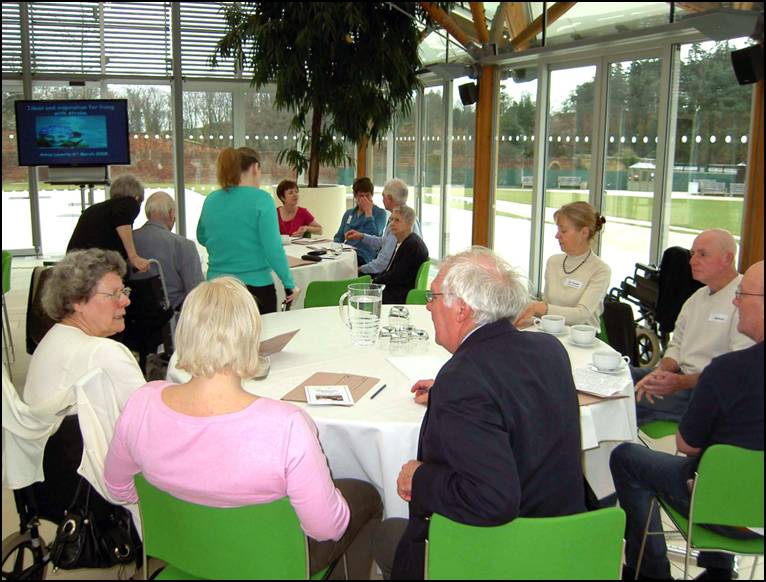Our Stroke Peer Support Programme was developed four years ago as an innovative approach to achieve the following aims :
•Help people with a new diagnosis of stroke and their families to access additional information and support during their hospital stay
•Reduce potential isolation and anxiety of people with stroke and their carers.
•Increase the confidence of people with stroke to facilitate their future engagement in social and community life.
•Enable people living with stroke to develop, influence and deliver services.
•Enable stroke volunteers to provide positive peer role modelling and strategies to cope with commonly faced challenges, validated by their own personal experiences of stroke.
Supported by a Speech Therapist, Psychologist and Stroke Information Co-ordinator, a 30hr training programme was developed, to equip volunteers to work alongside staff and patients on our three acute stroke units. Our recruitment process was agreed. The person specification included a lived experience as a carer or individual with stroke, good communication and listening skills, a positive attitude to recovery, ability to work within agreed boundaries, observe confidentiality and awareness of a range of self-management strategies.
We gave careful consideration to the needs of all involved and the training and support required to ensure authentic involvement.The resources developed to support the volunteers required a flexibility of approach to ensure teaching was sensitive to the needs and expectations of all participants. People with aphasia, visual impairment, memory loss and speech disturbance were all included in the programme.
Implementation has highlighted how both service users and providers need courage, confidence, competence, resources and appropriate tools to engage in meaningful relationships. We needed to be open to the potentially stressful nature of the peer support role and site based support and a buddy system was introduced. Specialist psychological support was made available to all volunteers.
With selection, training and induction complete, the stroke peer support programme began and in its first year 418 visits were made to 364 patients and carers by 23 volunteers With time and trust - relationships have been enhanced , and the service has gone from strength to strength .
Volunteers have integrated well with multidisciplinary teams in an acute hospital setting , gaining respect and cooperation from their professional colleagues.
Improving patient experience is now a key strategic priority for the NHS and delivering and designing health services around the needs and wishes of both service users and staff are integral to this. Our patient leaders offer an innovative response to this and do so in a way that bridges the gaps between those who provide a service and those who depend upon it.
With minimal investment, a positive impact was made upon the service system, values and practice in a very short space of time.

